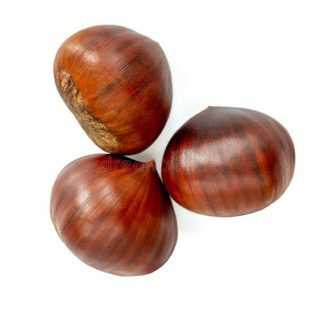

Edible chestnuts are safe for dogs to eat when cooked. However, it’s important to avoid horse chestnuts, which are toxic to canines. Chestnuts can be a healthy addition to your dog’s diet, as they are rich in fiber, omega-3 fatty acids, and protein
Sweet and Chinese chestnuts are both safe for dogs to eat and have similar nutritional benefits. Chestnuts are a good source of omega fatty acids, which can help improve heart health. They are also high in fiber, which can aid in digestion and relieve digestive distress in dogs.
Horse chestnuts should be avoided as they contain toxins that can cause vomiting, diarrhea, and paralysis in dogs. Chestnuts may be difficult for dogs to digest due to their starch content, and excessive consumption can result in digestive upset and severe diarrhea. Whole chestnuts can also pose a choking hazard and may cause intestinal blockages. Raw chestnuts are not recommended for dogs as they contain high levels of tannic acid, which can cause stomach irritation, liver damage, or kidney damage, especially in large quantities.
To reduce the levels of tannic acid, it’s recommended to boil or roast chestnuts before feeding them to your dog. Always remove the shells before serving. Sweet chestnuts should be fed to your dog in moderation as an occasional treat.
Chestnuts, especially sweet and Chinese ones, are a safe and healthy addition to your dog's diet. They are packed with fiber, protein, and omega-3 fatty acids, which can improve heart health and digestion. Horse chestnuts should be avoided due to their toxic properties. While chestnuts are generally safe, excessive consumption can lead to digestive upset and potential choking hazards. It is important to boil or roast them before feeding them to your dog and remove shells to avoid any risks. Sweet chestnuts can be given to your dog as an occasional treat. Chestnuts are affordable and readily available in many grocery stores. Have you ever considered adding chestnuts to your pet's diet? Share their experience in the comments below! As always, make sure to consult with your veterinarian before making any changes to your pet's diet.